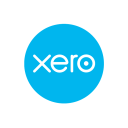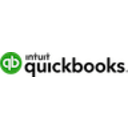FreshBooks vs Xero: Which accounting software is right for your business?
- 01FreshBooks vs Xero: overview
- 02What's the difference between FreshBooks and Xero?
- 03FreshBooks pros and cons
- 04Xero pros and cons
- 05FreshBooks compared to Xero
- 06Xero compared to FreshBooks
- 07Features comparison
- 08FreshBooks vs Xero: Which is the best for your business?
- 09Promotions on Accounting software
- 10Alternatives to FreshBooks & Xero
Access up to $216 savings on FreshBooks & $432 on Xero
Access up to $216 savings on FreshBooks & $432 on Xero
Managing finances effectively is crucial for businesses, freelancers, and entrepreneurs looking to streamline their operations and maintain healthy cash flow. Accounting software like FreshBooks and Xero plays a vital role in managing invoicing, expenses, and financial reporting, offering a range of features tailored to different business needs. However, with so many options available, choosing the right accounting software can be overwhelming.
But don’t worry—we’ve got you covered. In this article, we compare two popular tools for managing your finances—FreshBooks and Xero—and dive into their shared features and key differences. Read on to learn more about FreshBooks and Xero and discover which platform best suits your accounting and financial management needs.
FreshBooks vs Xero: overview
FreshBooks and Xero are prominent players in the accounting software space, each offering distinct sets of features and advantages tailored to various business and financial management needs.
FreshBooks excels as an intuitive invoicing and accounting solution, providing users with user-friendly tools for managing invoices, expenses, time tracking, and client relationships. It’s an ideal choice for freelancers, small business owners, and service-based businesses that prioritize simplicity and ease of use. On the other hand, Xero is a comprehensive accounting platform that offers a broader range of features, including advanced financial reporting, inventory management, and multi-currency support. It’s particularly well-suited for businesses that require more robust accounting functionalities, such as those with complex financial needs, larger teams, or global operations.
Now, let's delve into the FreshBooks vs. Xero comparison to help you make an informed decision when selecting the right accounting software for your business.
What's the difference between FreshBooks and Xero?
FreshBooks and Xero are powerful tools designed for managing finances, each catering to different aspects of accounting and business management. While both platforms offer features that streamline financial processes, the key difference lies in their target audience and the depth of functionality they provide.
FreshBooks is an intuitive accounting solution primarily designed for freelancers, small business owners, and service-based businesses. It excels in invoicing, time tracking, and expense management, offering a user-friendly interface that simplifies these tasks. FreshBooks is particularly well-known for its robust invoicing capabilities, allowing users to create professional invoices, automate payment reminders, and track client payments with ease. Its ecosystem is centered around ease of use, making it an excellent choice for users who need straightforward, efficient tools to manage their finances without requiring extensive accounting knowledge.
On the other hand, Xero is a comprehensive accounting platform that caters to businesses of all sizes, especially those with more complex accounting needs. Xero offers a wider range of features, including advanced financial reporting, inventory management, payroll integration, and multi-currency support. Its ecosystem is focused on providing a full-suite accounting solution that can handle the needs of larger teams, businesses with inventory, and those operating in multiple countries. Xero’s extensive integrations with third-party apps also make it a versatile choice for businesses looking to expand their financial management capabilities beyond basic accounting.
When deciding between FreshBooks and Xero, it’s important to consider the size and complexity of your business, as well as the specific features you need. If your focus is on simple, intuitive financial management with strong invoicing capabilities, FreshBooks may be the better choice. However, if your business requires a more comprehensive accounting solution with advanced features and scalability, Xero’s robust platform might be more aligned with your needs.
Another key difference is the pricing structure. FreshBooks offers tiered pricing based on the number of billable clients and additional features, while Xero’s pricing is based on the level of functionality and number of users. Your choice should consider both your business requirements and your budget.

60% off for 6 months on FreshBooks
Get 60% off for 6 months on FreshBooks and up to $216 savings with Secret.
FreshBooks pros and cons
What are the advantages of FreshBooks?
- User-friendly interface: FreshBooks is known for its intuitive, easy-to-navigate interface, making it accessible even for users with little to no accounting experience.
- Strong invoicing capabilities: FreshBooks excels in creating and managing professional invoices. It offers automation for recurring invoices, payment reminders, and even late fee applications.
- Expense tracking: The platform allows you to easily track expenses by connecting your bank account, uploading receipts, and categorizing expenses, simplifying tax time.
- Time tracking: FreshBooks includes built-in time tracking features, which is particularly beneficial for freelancers and service-based businesses that bill by the hour.
- Excellent customer support: FreshBooks is praised for its responsive and helpful customer support, offering assistance through various channels, including phone, email, and live chat.
What are the disadvantages of FreshBooks?
- Limited features for larger businesses: While FreshBooks is great for small businesses, freelancers, and service-based industries, it may lack some of the more advanced features needed by larger businesses, such as detailed inventory management or complex financial reporting.
- Pricing based on billable clients: FreshBooks’ pricing is based on the number of billable clients, which can become expensive as your client base grows, especially for freelancers or small businesses with numerous small clients.
- Limited integration options: Although FreshBooks offers some integrations, it has fewer third-party integrations compared to other accounting software like Xero or QuickBooks, potentially limiting its flexibility for some businesses.
- No payroll services: FreshBooks does not offer built-in payroll services, meaning businesses needing payroll management will have to use a separate service or software.
- Basic reporting: While FreshBooks offers essential financial reports, it lacks the depth and customization options available in more robust accounting software, which may be a drawback for businesses needing detailed financial analysis.
Compare FreshBooks to other tools
Xero pros and cons
What are the advantages of Xero?
- Comprehensive accounting features: Xero offers a full suite of accounting tools, including advanced financial reporting, inventory management, payroll integration, and multi-currency support, making it suitable for businesses of all sizes.
- Extensive integrations: Xero has a large ecosystem of third-party apps and integrations, allowing businesses to connect with various tools such as CRM systems, payment processors, and e-commerce platforms, enhancing its functionality.
- Cloud-based access: As a cloud-based platform, Xero allows users to access their accounts from anywhere with an internet connection, making it convenient for remote work and businesses with multiple locations.
- Scalability: Xero is designed to scale with your business, offering features that cater to both small businesses and larger enterprises. It can handle more complex accounting needs as your business grows.
- Strong multi-currency support: Xero provides excellent multi-currency support, automatically calculating exchange rates and handling transactions in multiple currencies, making it ideal for businesses with international clients or operations.
What are the disadvantages of Xero?
- Steeper learning curve: Due to its comprehensive features, Xero can have a steeper learning curve for users who are new to accounting software or who only require basic functionalities.
- Higher cost for advanced features: While Xero offers a range of features, these come at a higher price point, especially for plans that include advanced functionalities like payroll or multi-currency support.
- Limited customer support: Xero primarily offers online support through email or its help center, which may not be as immediate or personalized as phone support. This can be a drawback for users who prefer direct, real-time assistance.
- Complex setup: Initial setup and configuration of Xero can be time-consuming, particularly for businesses with complex accounting needs or those migrating from another platform.
- Performance issues with large data sets: Some users have reported that Xero can slow down when dealing with very large data sets or when using certain features extensively, which can affect productivity in high-volume businesses.
Compare Xero to other tools
FreshBooks compared to Xero
FreshBooks and Xero are both powerful accounting software solutions, but they cater to different business needs. FreshBooks excels in simplicity and ease of use, making it ideal for freelancers and small businesses focused on invoicing, time tracking, and basic expense management. Its user-friendly interface is a major draw for those without extensive accounting knowledge.
Xero, on the other hand, offers a more comprehensive set of features, including advanced financial reporting, inventory management, and multi-currency support, making it better suited for larger businesses with more complex accounting requirements. While FreshBooks is intuitive, Xero provides scalability and depth.
Is FreshBooks better than Xero?
Whether FreshBooks is better than Xero depends on your specific business needs. FreshBooks is ideal for freelancers and small businesses that prioritize ease of use and straightforward invoicing, expense tracking, and time management. Its intuitive interface makes it accessible for users without extensive accounting knowledge, providing a seamless experience for managing basic financial tasks.
Xero, however, is better suited for businesses that require more advanced features, such as detailed financial reporting, inventory management, and multi-currency support. Xero's scalability and comprehensive tools make it a stronger choice for larger businesses with complex accounting needs.
What is FreshBooks best used for?
FreshBooks is best used for small businesses, freelancers, and service-based professionals who need a simple yet powerful tool for managing invoicing, expenses, and time tracking. Its intuitive interface makes it easy to create professional invoices, track billable hours, and manage client payments with minimal effort.
FreshBooks is particularly well-suited for those who prioritize ease of use and require streamlined financial management without the complexity of more comprehensive accounting software. Its automation features, such as recurring billing and payment reminders, further enhance efficiency, making it an ideal choice for those looking to manage their finances effectively with minimal hassle.
Can FreshBooks replace Xero?
FreshBooks can replace Xero for small businesses, freelancers, and service-based professionals who need a straightforward, user-friendly accounting solution primarily focused on invoicing, expense tracking, and time management. However, it may not be a complete replacement for Xero for larger businesses or those with more complex accounting needs. Xero offers more advanced features, such as detailed financial reporting, inventory management, payroll integration, and multi-currency support.
While FreshBooks excels in simplicity and ease of use, Xero provides a more comprehensive solution for businesses requiring robust accounting functionalities, making it better suited for growing enterprises and larger teams.
Is FreshBooks cheaper than Xero?
FreshBooks is generally cheaper than Xero, particularly for small businesses, freelancers, and individuals who require basic accounting features like invoicing, expense tracking, and time management. FreshBooks' pricing is based on the number of billable clients, which can make it more affordable for those with a smaller client base.
Xero, while offering more advanced features and greater scalability, typically comes at a higher cost due to its comprehensive suite of tools, including advanced reporting, inventory management, and payroll integration. For those needing only essential accounting functions, FreshBooks can be a more cost-effective option compared to Xero.
Is there a better Accounting software than FreshBooks?
While FreshBooks is a popular and user-friendly accounting software, it's important to consider whether there might be a better option for your specific financial management needs.
Several notable alternatives to FreshBooks offer unique strengths and capabilities tailored to different requirements. These alternatives include Xero, QuickBooks, Wave, Zoho Books, and Sage. The choice of accounting software depends on factors such as your business size, the complexity of your accounting needs, industry-specific features, and budget. While FreshBooks excels in simplicity and ease of use, other platforms may offer more advanced features, better scalability, or specialized tools for larger businesses or industries with more complex financial demands.
60% off for 6 months on FreshBooks
Get 60% off for 6 months on FreshBooks and up to $216 savings with Secret.
Xero compared to FreshBooks
Xero offers a more comprehensive accounting solution compared to FreshBooks, making it suitable for businesses with complex financial needs. Xero provides advanced features such as detailed financial reporting, inventory management, multi-currency support, and payroll integration, which cater to larger businesses and those operating globally.
FreshBooks, on the other hand, is designed for simplicity, focusing on invoicing, expense tracking, and time management, making it ideal for small businesses and freelancers. While FreshBooks is easier to use for those with basic accounting requirements, Xero’s robust features make it a better choice for businesses needing more extensive financial management capabilities.
Is Xero better than FreshBooks?
Xero can be considered better than FreshBooks if your business requires a wide range of accounting features and the ability to manage complex financial operations. Xero’s advanced tools, such as inventory management, multi-currency support, and comprehensive financial reporting, make it particularly well-suited for larger businesses or those with international dealings. Its scalability allows it to grow alongside your business, providing robust financial management capabilities.
However, for small businesses and freelancers who prioritize simplicity and ease of use, FreshBooks may still be the better option due to its straightforward approach to invoicing and basic financial tasks.
What is Xero best used for?
Xero is best used for businesses that require comprehensive and scalable accounting solutions. It is particularly well-suited for small to medium-sized businesses that need advanced features like detailed financial reporting, inventory management, multi-currency handling, and payroll integration.
Xero excels in providing a full suite of accounting tools that support complex financial operations, making it ideal for businesses with larger teams, multiple locations, or international transactions. Its extensive app ecosystem and robust integrations also make it a strong choice for companies looking to streamline operations across various business functions, ensuring seamless financial management and growth scalability.
Can Xero replace FreshBooks?
Xero can replace FreshBooks for businesses that need more advanced accounting features and scalability. While FreshBooks is excellent for freelancers and small businesses focused on invoicing, expense tracking, and basic financial management, Xero offers a broader range of tools, including detailed financial reporting, inventory management, and multi-currency support.
For businesses that outgrow FreshBooks’ simplicity and require more comprehensive accounting capabilities, Xero provides a more robust solution. However, for users who prioritize ease of use and primarily need straightforward invoicing and time tracking, FreshBooks might remain the more suitable option despite Xero’s broader functionality.
Is Xero cheaper than FreshBooks?
Xero is generally not cheaper than FreshBooks, especially when considering the advanced features and scalability it offers. Xero’s pricing is based on the level of functionality and number of users, which can make it more expensive, particularly for businesses requiring advanced features like payroll, multi-currency support, and detailed financial reporting.
FreshBooks, on the other hand, is typically more affordable for small businesses and freelancers, with pricing based on the number of billable clients and basic accounting features. While FreshBooks offers a cost-effective solution for simpler needs, Xero’s higher cost reflects its more comprehensive accounting capabilities.
Is there a better Accounting software than Xero?
While Xero is a popular and robust accounting software, it's important to consider whether there might be a more suitable solution for your specific business needs.
Several noteworthy alternatives to Xero offer different strengths and features tailored to various aspects of financial management. Prominent alternatives include QuickBooks Online, FreshBooks, Sage Intacct, and Zoho Books.
The choice of accounting software depends on factors such as the size of your business, the complexity of your accounting needs, industry-specific requirements, and your budget. While Xero excels in providing comprehensive accounting features and scalability, other platforms may offer more advanced industry-specific tools, easier usability for smaller businesses, or more cost-effective solutions for simpler financial management tasks.
90% off for 6 months on Xero
Get 90% off for 6 months on Xero and up to $432 savings with Secret.
Features comparison
FreshBooks Takes the Lead Over Xero in User-Friendliness
When it comes to usability, both FreshBooks and Xero offer interfaces designed with user-friendliness in mind, but FreshBooks takes a slight edge in this category. FreshBooks is particularly praised for its intuitive design, featuring a straightforward dashboard that simplifies accounting tasks for non-accountants. The platform provides a visually pleasing experience with clear, easily recognizable task icons and minimal clutter, making navigation a breeze.
In contrast, while Xero is also user-friendly, its interface is more complex, reflecting its extensive feature set. New users might require additional time to fully understand Xero’s setup, especially when dealing with its advanced accounting tools. For those who prioritize ease of use and want to get started quickly without a steep learning curve, FreshBooks might be the better choice, particularly for small businesses and freelancers looking for straightforward financial management.
Xero Outshines FreshBooks in Integration Versatility
On the integration front, Xero takes the lead with over 800 integrations, significantly outpacing FreshBooks, which offers around 100. This vast difference positions Xero as the heavyweight champion in this category, making it ideal for businesses that rely on a diverse range of tools. Xero integrates smoothly with a wide variety of SaaS applications, including popular payment gateways like Stripe, CRM systems like Salesforce, eCommerce platforms such as Shopify, and many other essential business tools. This extensive network gives businesses incredible flexibility and adaptability, allowing them to tailor their tech stack precisely to their needs.
On the other hand, while FreshBooks offers fewer integrations, it focuses on delivering quality connections that seamlessly cater to key operational areas such as expense tracking, project management, and payment processing. For example, FreshBooks integrates effectively with Trello for project management and Gusto for payroll, ensuring a streamlined workflow for small businesses. If your business requires extensive and varied integrations, Xero may be the tool for you. However, if you prefer simplified, high-quality integrations that cover essential business functions, FreshBooks offers a robust and reliable solution.
Xero Excels Over FreshBooks in Analytical Reporting
While both FreshBooks and Xero provide essential reporting features, Xero excels in the realm of analytical reporting, making it a superior choice for businesses that require deep financial insights. Xero’s reporting capabilities are highly comprehensive, offering detailed reports that allow businesses to track key performance indicators, monitor cash flow projections, and generate in-depth financial analysis. For example, Xero’s Budget Manager and Cash Flow Forecast tools help startups and growing businesses anticipate future financial trends, manage expenses, and plan for growth effectively.
In contrast, FreshBooks focuses more on traditional financial reports such as balance sheets, profit and loss statements, and tax summaries. While these reports are crucial for understanding a business’s current financial position, FreshBooks does not offer the same level of predictive analytics and detailed financial forecasting as Xero. Therefore, if your business requires advanced reporting to monitor financial health and make strategic decisions, Xero’s robust analytical tools offer a distinct advantage over FreshBooks.
FreshBooks Excels Over Xero in Time Tracking for Freelancers and Consultants
Specifically designed with freelancers and consultants in mind, FreshBooks has incorporated a robust time tracking feature that allows users to accurately track billable hours directly within the platform. This feature is essential for effective time management, ensuring that every minute of work is accounted for and seamlessly converted into an invoice. For example, a consultant can track time spent on different projects or clients, and FreshBooks automatically generates invoices based on these logged hours, ensuring accurate billing without the risk of manual errors.
In contrast, Xero does not offer a comparable built-in time tracking feature, which could be a limitation for service-based professionals who rely on precise time tracking for invoicing. While Xero integrates with third-party time tracking apps, the lack of a native solution means an additional step for users. If your business depends on meticulous time tracking for billing purposes, FreshBooks offers a significant advantage with its integrated and user-friendly time tracking tools.
Xero Excels Over FreshBooks with Superior Inventory Management
One unique aspect of Xero is its robust inventory management function, which provides startups and growing businesses with real-time tracking of stock levels, enabling them to efficiently manage their physical inventory. This feature is particularly advantageous for businesses that sell products, as it allows users to monitor stock quantities, set reorder points, and fill orders directly from the platform. For example, a retail business can automatically adjust inventory levels as sales are made, ensuring they always have an accurate view of stock availability and avoiding over- or under-stocking.
This level of inventory oversight is a significant advantage for businesses dealing with physical goods, as it integrates seamlessly with Xero’s broader accounting features. In contrast, FreshBooks does not offer a comparable inventory management feature, making it less suitable for businesses that need to track and manage inventory within their accounting system. For product-based businesses, Xero’s comprehensive inventory tools provide a distinct edge over FreshBooks, streamlining operations and improving overall efficiency.
FreshBooks Excels Over Xero in Mobile App Functionality
FreshBooks triumphs over Xero in the range of features offered within their mobile application, providing a more comprehensive on-the-go experience for users. FreshBooks’ mobile app is designed with small business owners and freelancers in mind, encompassing core functionalities such as invoicing, expense tracking, and timekeeping. This allows users to create and send invoices, snap photos of receipts for immediate expense entry, and log billable hours directly from their mobile devices. For example, you can quickly generate an invoice while at a client site or track expenses in real-time during business trips.
While Xero also provides a mobile app, it lacks the same level of detail and functionality that FreshBooks offers, particularly in terms of user experience and ease of access to features. Xero’s app allows users to view reports, reconcile transactions, and check account balances, but it doesn’t emphasize the seamless mobile-first experience that FreshBooks delivers. If you prioritize robust mobile functionality to manage your business finances from anywhere, FreshBooks clearly offers the superior mobile solution.
Both FreshBooks and Xero Offer Superb Online Invoicing Capabilities
Both FreshBooks and Xero provide robust online invoicing capabilities, offering users the convenience of creating and sending invoices digitally, streamlining the billing process. FreshBooks allows users to create highly customizable invoices that reflect their brand’s identity, with options to add logos, personalized messages, and due dates. It also automates payment reminders and late fees, ensuring clients are reminded of pending payments without manual follow-up.
Similarly, Xero offers a powerful invoicing system with customizable templates, enabling users to include detailed line items, discounts, and payment terms. Xero’s invoicing tool also integrates with its broader accounting features, allowing for seamless tracking of outstanding invoices and reconciliation. Additionally, both platforms support multiple payment gateways, making it easier for clients to pay online through options like PayPal, Stripe, or credit cards. If your business requires a reliable and efficient invoicing system, both FreshBooks and Xero deliver excellent solutions tailored to your needs.
Subscribe to our newsletters.
No FOMO here. Stay up-to-date on all the latest deals and news with our monthly newsletter straight to your inbox like 126,000+ entrepreneurs (+ Get 10% off on on our Premium Membership!)
FreshBooks vs Xero: Which is the best for your business?
FreshBooks is the best tool for you if:
- You are a freelancer or small business owner who needs a simple, intuitive platform for managing invoices, expenses, and client relationships without requiring extensive accounting knowledge or experience.
- You prioritize ease of use and want to quickly generate and send professional invoices, track payments, and manage recurring billing with minimal effort and a visually appealing interface.
- Your business requires seamless time tracking, allowing you to log billable hours directly within the platform and convert them into accurate, detailed invoices for your clients.
- You need streamlined expense tracking with the ability to upload receipts, categorize expenses, and easily manage your finances, particularly during tax season.
- Your business relies on high-quality integrations with essential tools like payment processors, project management software, and payroll services, ensuring a smooth, efficient workflow.
Xero is the best tool for you if:
- You run a small to medium-sized business that requires advanced accounting features, including detailed financial reporting, inventory management, and multi-currency support, to handle complex financial operations efficiently.
- Your business operates globally or deals with multiple currencies, and you need robust tools for managing international transactions, with automatic exchange rate calculations and seamless multi-currency invoicing.
- You seek extensive integration capabilities, allowing you to connect with over 800 third-party applications, from CRM systems to eCommerce platforms, to create a customized and scalable financial ecosystem.
- Your business requires comprehensive payroll management within the same platform, with features that streamline employee payments, tax calculations, and compliance with local regulations.
- You need in-depth budgeting and cash flow forecasting tools to plan for the future, manage expenses, and make data-driven financial decisions that support your business growth and sustainability.

60% off for 6 months on FreshBooks
Get 60% off for 6 months on FreshBooks and up to $216 savings with Secret.
Alternatives to FreshBooks & Xero
Promotions on Accounting software
Start saving on the best SaaS with Secret.
Secret has already helped tens of thousands of startups save millions on the best SaaS like FreshBooks, Xero & many more. Join Secret now to buy software the smart way.












